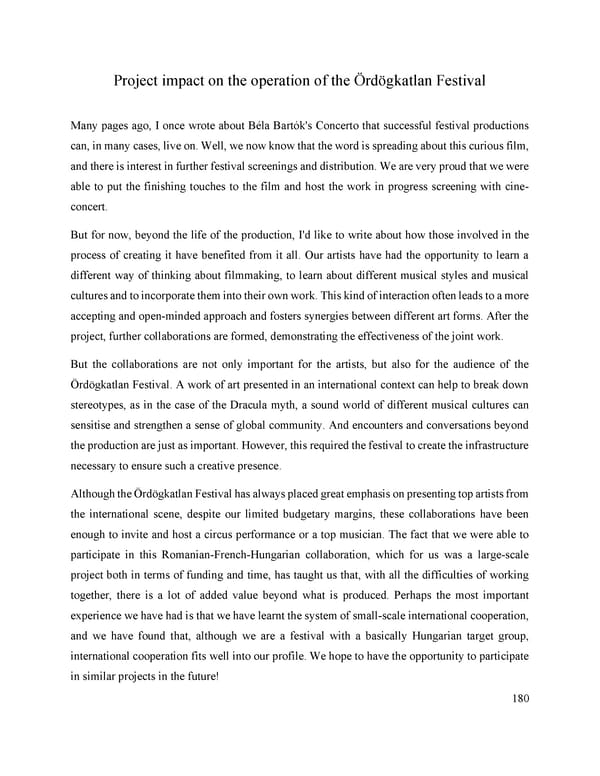Project impact on the operation of the Ördögkatlan Festival Many pages ago, I once wrote about Béla Bartók's Concerto that successful festival productions can, in many cases, live on. Well, we now know that the word is spreading about this curious film, and there is interest in further festival screenings and distribution. We are very proud that we were able to put the finishing touches to the film and host the work in progress screening with cine- concert. But for now, beyond the life of the production, I'd like to write about how those involved in the process of creating it have benefited from it all. Our artists have had the opportunity to learn a different way of thinking about filmmaking, to learn about different musical styles and musical cultures and to incorporate them into their own work. This kind of interaction often leads to a more accepting and open-minded approach and fosters synergies between different art forms. After the project, further collaborations are formed, demonstrating the effectiveness of the joint work. But the collaborations are not only important for the artists, but also for the audience of the Ördögkatlan Festival. A work of art presented in an international context can help to break down stereotypes, as in the case of the Dracula myth, a sound world of different musical cultures can sensitise and strengthen a sense of global community. And encounters and conversations beyond the production are just as important. However, this required the festival to create the infrastructure necessary to ensure such a creative presence. Although the Ördögkatlan Festival has always placed great emphasis on presenting top artists from the international scene, despite our limited budgetary margins, these collaborations have been enough to invite and host a circus performance or a top musician. The fact that we were able to participate in this Romanian-French-Hungarian collaboration, which for us was a large-scale project both in terms of funding and time, has taught us that, with all the difficulties of working together, there is a lot of added value beyond what is produced. Perhaps the most important experience we have had is that we have learnt the system of small-scale international cooperation, and we have found that, although we are a festival with a basically Hungarian target group, international cooperation fits well into our profile. We hope to have the opportunity to participate in similar projects in the future! 180
 Lost Analogue: Exploring Film, Music, and Interdisciplinary Methods in Education Page 180 Page 182
Lost Analogue: Exploring Film, Music, and Interdisciplinary Methods in Education Page 180 Page 182